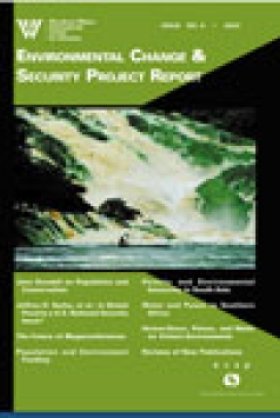A Southern African Perspective on Transboundary Water Resource Management


Southern Africa is characterized by a large number of international river basins, inherent climatic variability, and a natural maldistribution of perennial rivers. The region also has a history of political instability, driven by liberation struggles against the former colonial powers and the Cold War. Southern Africa’s transboundary rivers and their associated ecosystems could become either drivers of peace and economic integration or sources of endemic conflict. Water scarcity has also placed limits on the future economic growth potential of the region’s four most economically developed countries. This situation, combined with the regional development of international and increasingly complex interbasin water transfers, highlights the need to develop appropriate scientific methodologies that can explain and predict future patterns of conflict and cooperation.
Author

Environmental Change and Security Program
The Environmental Change and Security Program (ECSP) explores the connections between environmental change, health, and population dynamics and their links to conflict, human insecurity, and foreign policy. Read more

Explore More
Browse Insights & Analysis
Navigating Peace: Water, Conflict, and Cooperation

Anthony Turton

